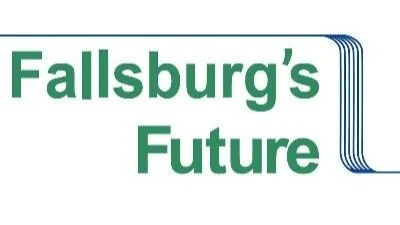Condemn Hate, But Don’t Silence Accountability in Sullivan County
Dear Friends
The discovery of “Jews did 9/11” scrawled into a cement post at Thompson Square Mall jolted many of us. The Sullivan County Coalition Against Antisemitism called the vandalism “grossly antisemitic,” and local officials swiftly condemned it. Their outrage is justified: blaming Jews for a national tragedy is a classic, dangerous conspiracy trope that historically precedes discrimination and violence.
Those who still think antisemitism is a relic of the past should look at the numbers. The Anti-Defamation League recorded 1,437 antisemitic incidents in New York in 2024—a record high and an 18 percent jump in a single year.  Our own county has seen assaults on Orthodox pedestrians and egg-throwing attacks this month alone. Hate crimes are real, rising, and must be confronted without hesitation.
But something else is also true: legitimate criticism of communal behavior—especially around land-use, water, and code enforcement—cannot be dismissed as bigotry. Fallsburg residents have raised detailed concerns about overdevelopment straining aquifers and infrastructure, opaque zoning variances, and a perceived “inside track” enjoyed by certain developers. Questioning those practices, demanding environmental studies, or insisting everyone follow the same rules is not antisemitism; it is citizenship.
Too often, the charge of antisemitism is leveled reflexively to halt that discussion. When a neighbor asks why a 159-unit mobile-home park in a REC zone is moving forward without a hydrogeologic review, the response should be data—not an accusation of prejudice. Weaponizing the word “antisemitism” in this way corrodes public trust and, ironically, makes it harder to rally people when genuine hate rears its head.
There is also an optics problem the Orthodox and Hasidic leadership cannot ignore. Insularity, bloc voting, and a reluctance to engage with the wider community feed resentment. Closed-door decision-making and rapid, large-scale development projects feel dismissive of longtime residents who worry about water shortages or rising taxes. Those dynamics do not excuse graffiti or harassment, but they do explain why some locals feel unheard and angry.
We are therefore confronted with two moral imperatives that are not mutually exclusive:
1. Unambiguous condemnation—and prosecution—of antisemitic acts.
2. Unflinching insistence on transparency, equal enforcement of codes, and respectful dialogue about growth.
Failing at either obligation will deepen the fracture. Demonizing Orthodox neighbors for who they are is wrong. Equally wrong is allowing any group—religious or otherwise—to invoke victimhood as a shield against legitimate scrutiny.
Sullivan County can model a healthier path. Local boards should hold open forums where engineers, environmental scientists, and residents examine data together. Faith leaders—Orthodox, Christian, Muslim, and secular alike—should appear side-by-side to denounce hate while also pledging cooperation on zoning and infrastructure challenges. And ordinary citizens must call out conspiracy graffiti and attend planning-board meetings in equal measure.
Hate thrives in silence; so does unaccountable power. It is time we refuse both.
There will be an election for Town Board this fall. Several current members will be running for re-election. Fallsburg Future has decided to publish a weekly newsletter highlighting the issues that face the residents and the town. Each newsletter will highlight a particular topic of concern as well as an overview of a particular issue. We have had technical issues with our email service. It has been corrected and you are able to respond to this email.
Fallsburg's Future is a community network of concerned Fallsburg residents established in January 2016. Its Mission is to help guide the urban development of the town of Fallsburg and its five hamlets, to promote its sustainable economic development, protect the fragile beauty of its natural habitats and enhance the opportunities and quality of life for all its residents and visitors. We hope to curb the suburban sprawl that is threatening to overwhelm the town’s physical infrastructure and destroy the natural beauty that the area depends on for its future development. See us on Facebook and our website Fallsburgsfuture.com.

